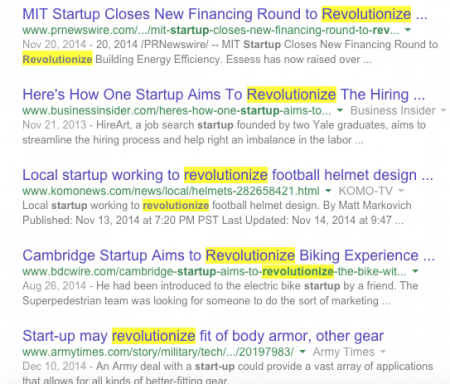 In high tech startup culture, it’s popular (in fact, almost a requirement) for founders to speak in terms of revolutionary change, and “disruptive innovation” that will destroy existing ways of doing business and traditional economic models.
In high tech startup culture, it’s popular (in fact, almost a requirement) for founders to speak in terms of revolutionary change, and “disruptive innovation” that will destroy existing ways of doing business and traditional economic models.
Meanwhile, the vast majority of startup companies fail to meet their goals and are out of business within a relatively short time — disrupting very little, except the founder’s and investors’ finances.
Revolutionary change is much more rare than you would believe from reading technology blogs. And, it’s usually achieved differently from how most people perceive it from the outside.
To understand what happens in startup culture, it’s helpful to look at how individuals progress, learn, and grow. Learning theorists have identified two types of learners: those who have an entity theory of intelligence, and those who have an incremental theory of intelligence. The entity theory of intelligence believes that intelligence is fixed and unchangeable. Incrementalists believe that intelligence can be increased through effort.
Studies have found that people who have an entity theory of intelligence are more likely to give up when faced with difficult problems, or to simply avoid situations in which they might look unintelligent. People with an incrementalist view of intelligence look for ways to adapt, increase their efforts, and master challenges.
Just as individuals with an entity theory of intelligence try to avoid mistakes and believe that great accomplishments are dependent on talent, startup founders with an entity theory believe that success must be explosive, revolutionary, and disruptive. While this view may be exciting, it’s rarely true. Even companies and individuals who seem to have achieved revolutionary success actually worked in an incremental way.
For example, Charlie Parker practiced saxophone for 11 to 15 hours a day for years to get as good as he was. Whether he had some sort of natural talent is irrelevant — he put in the work and made himself great one day at a time.
Business books are full of case studies of people and companies that failed numerous times before achieving success. Even more common are successful businesses that build small achievements and successes into long-term stability and prosperity. While not as glamorous as the idea of sudden revolution, this is how lasting change, in individuals as well as in businesses, is really accomplished.
